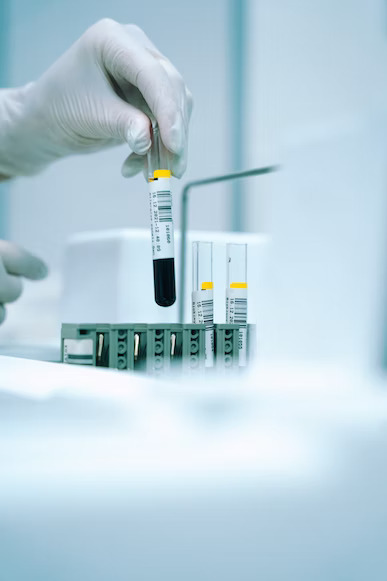Preventive Healthcare
Basic Metabolic Panel (BMP) Test: What It Is, Uses, Procedure And Results

Table of Contents
A Basic Metabolic Panel Test (BMP) is a combination of tests that measure eight types of chemicals. Each of them occurs naturally in the blood. Using the results of these tests, doctors can diagnose an underlying health condition in the human body. A BMP is a blood test that helps a doctor understand the functions of the human body. Using the test results, they can make assessments about the levels of electrolytes, the balance of fluids, and the function of the kidney. Usually, these blood tests are performed on the plasma component of the blood.
During the test, eight separate chemicals are assessed in the blood. These include the following:
- Electrolytes: These include sodium, carbon dioxide, potassium, and chloride. These are electrically charged minerals that help to maintain the balance of acids, fluids, and bases in the body.
- Calcium: A vital mineral, it helps to keep the heart, muscles, and nerves functioning in the right state in the body.
- Glucose: It is considered to be the main source of energy in the body.
- Blood urea nitrogen and creatinine: These are waste products that are eliminated from the body by the kidneys.
The other names of this test are the chemistry screen, chemistry panel, and electrolyte panel.
What is The Use Of a BMP Test?
A doctor will usually use a BMP test to check the various functions of the human body. These functions include the balance of fluids and electrolytes, the function of the kidney, and metabolism. A doctor may ask you to get a Bmp Test done as a routine check-up. However, in some cases, the doctor may want to monitor you for certain chronic conditions such as kidney disease, high blood pressure, or more such conditions. In this case, they may ask you to get the test done. If during the test, any of the eight substances show an abnormality, it is possible that you may be at risk of developing a serious health condition.
Your doctor may also ask you to get a BMP test done if you are experiencing certain general symptoms such as confusion, fatigue, vomiting, or breathing troubles. Depending on your health condition, your doctor may use your test results for the purpose of diagnosis, screening, or monitoring. The test can help your doctor diagnose a particular medical condition. They could also use the results for screening in an attempt to detect a health issue before it begins to show any symptoms. This type of routine screening can help detect certain health conditions during the early stages. But if you are already facing a medical condition, this test can help your doctor understand whether a particular treatment is working or not. The test can also help check for any side effects due to certain medicines, specifically those which can affect your kidneys.
What Happens During a BMP Test?
During a BMP test, a healthcare provider will use a small needle to draw blood from a vein. The blood sample will be collected in a test tube, after which, it will be sent to a lab for analysis. You may feel a slight bruising or tenderness at the site from which the blood sample is drawn. The test results will be analyzed in a lab and depending on the results, your doctor may ask you to get additional tests performed. It may be necessary to stop consuming any meals or drinks at least 8 hours before the test.
There are minimal risks associated with this type of blood test. Only slight bruising or pain may be experienced at the site of the injection. However, these symptoms will generally go away in no time.
Why Do I Need a BMP Blood Test Done?
There are many situations in which a Bmp Blood Test can provide useful insights to a doctor. They may ask you to get the test done for the following reasons:
- If you are undergoing a specific treatment in an emergency room
- If you are facing any typical symptoms related to the function of the kidney or issues with the metabolism.
- In cases of general symptoms such as feelings of fatigue or vomiting.
- To check for chronic health conditions such as kidney disease or high blood pressure.
- If you had already undergone a test in the past, check whether the current levels have changed significantly.
- If you are being given any medicine which could have an impact on kidney function.
Is There a Difference Between a Comprehensive Metabolic Panel And Basic Metabolic Panel?
Broadly, BMP and CMP are very similar tests. Both tests are routine and can be ordered by a doctor in very similar situations as listed above. A CMP includes 14 different tests. These tests include the 8 tests that are included in a BMP and 6 other tests. These additional tests are designed to measure the concentration of proteins and enzymes in the blood. Some of these tests are:
1. Total Protein: It measures the amount of albumin and globulins. They are proteins that are found in the blood. Most of these proteins deal with the blood vessels and the function of the immune system.
2. Bilirubin: When red blood cells are broken down, then this waste product is generated.
3. Albumin: It is a type of protein that is made in the liver.
Conclusion
If any one of the BMP results comes out to be abnormal during the test, it does not definitively mean that you have a serious health condition. Factors such as your diet, health conditions, and certain medicines can also impact your test results. Ask your healthcare provider to consider your medical history and your current medicines to understand the test results clearly. Talk to your healthcare provider to understand when and if you need to undergo this test.





















